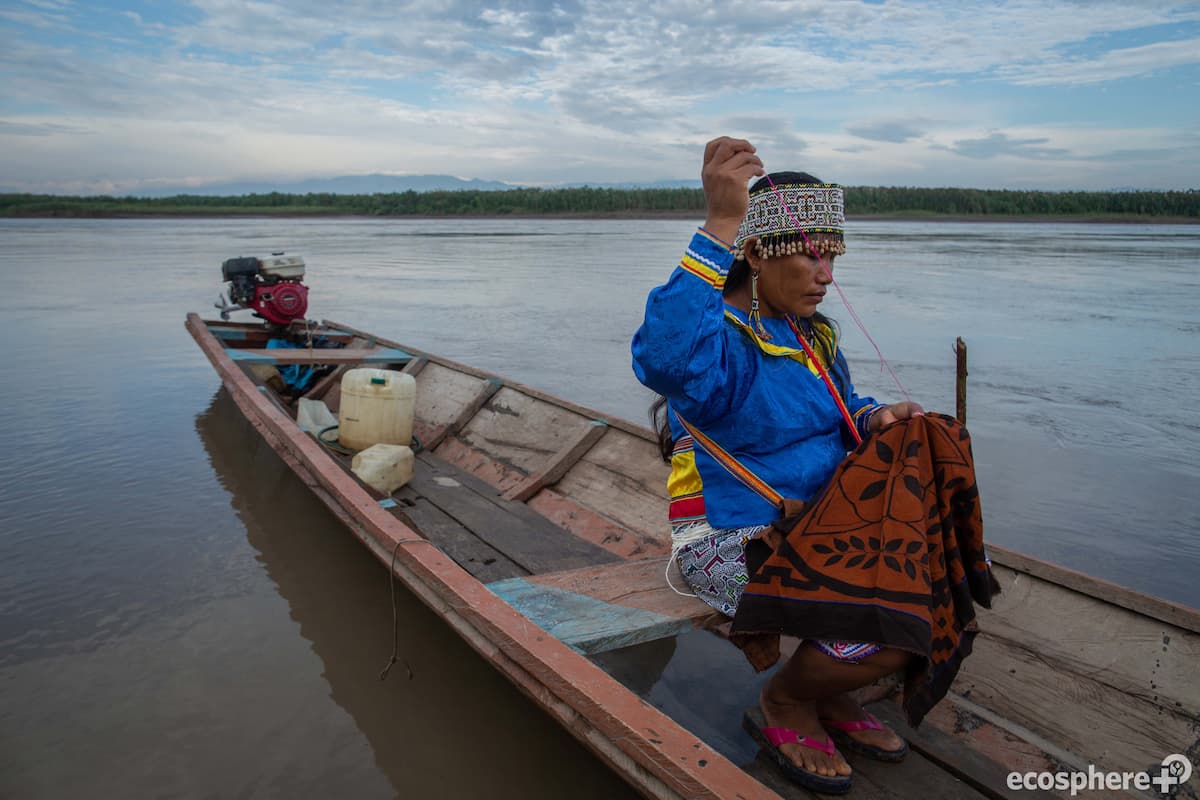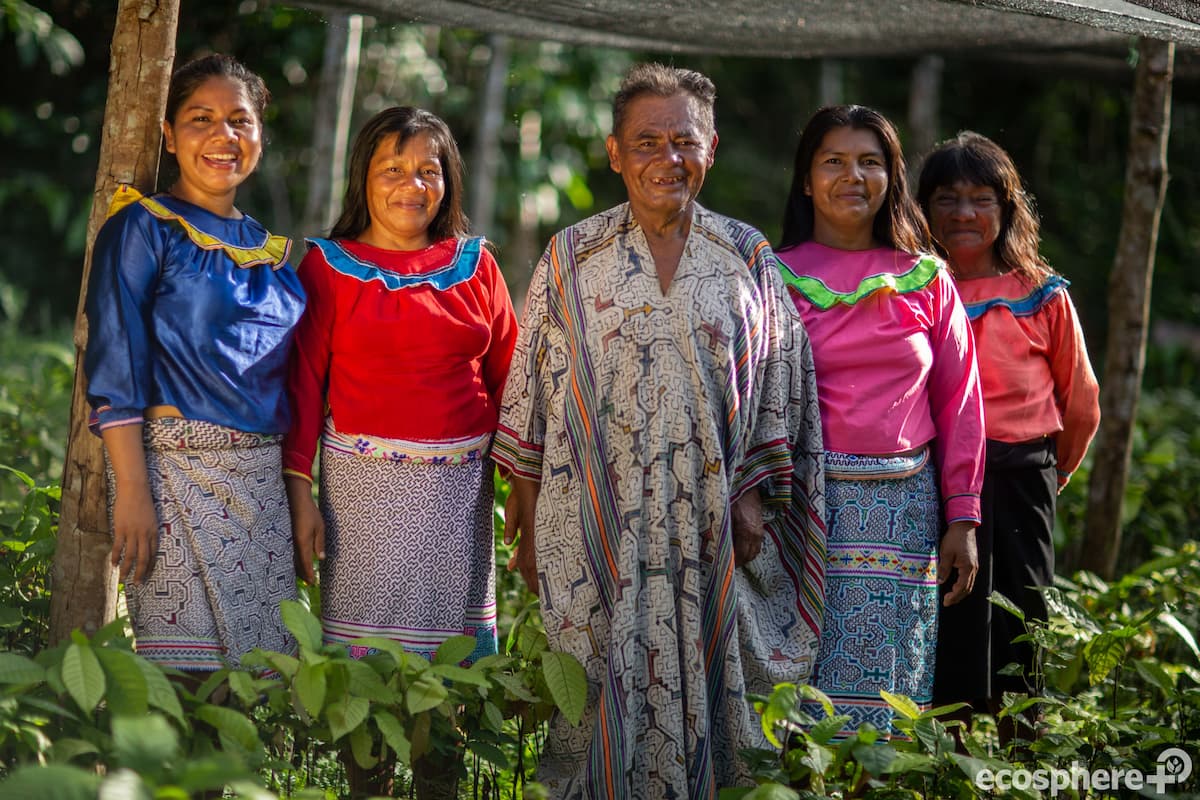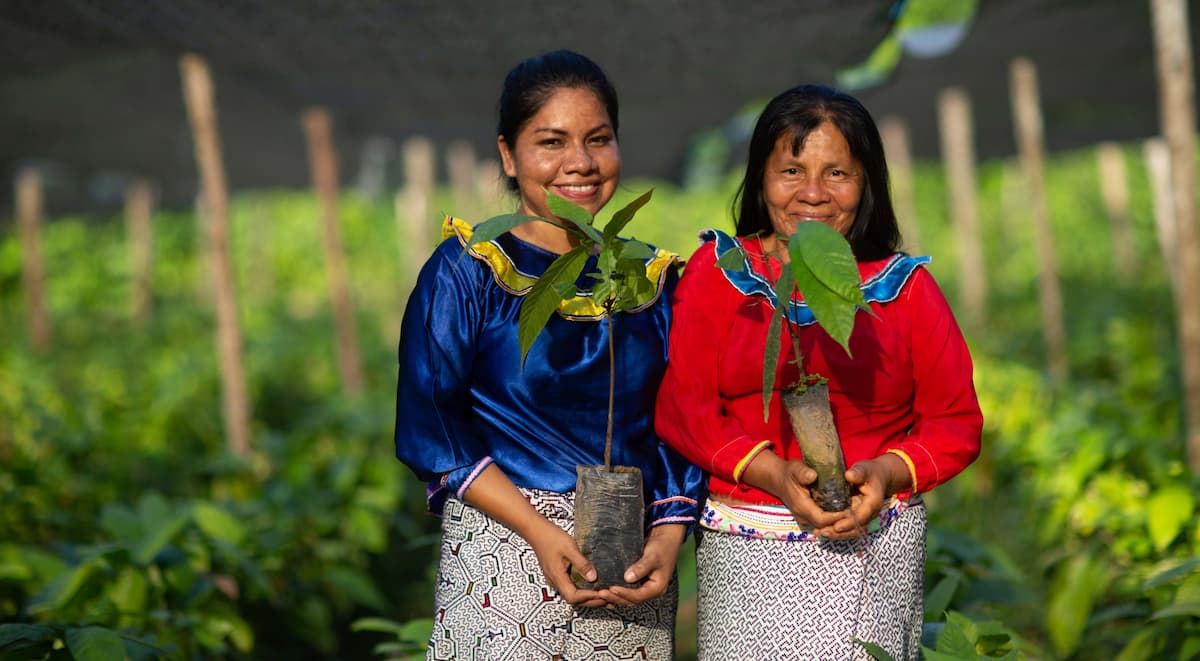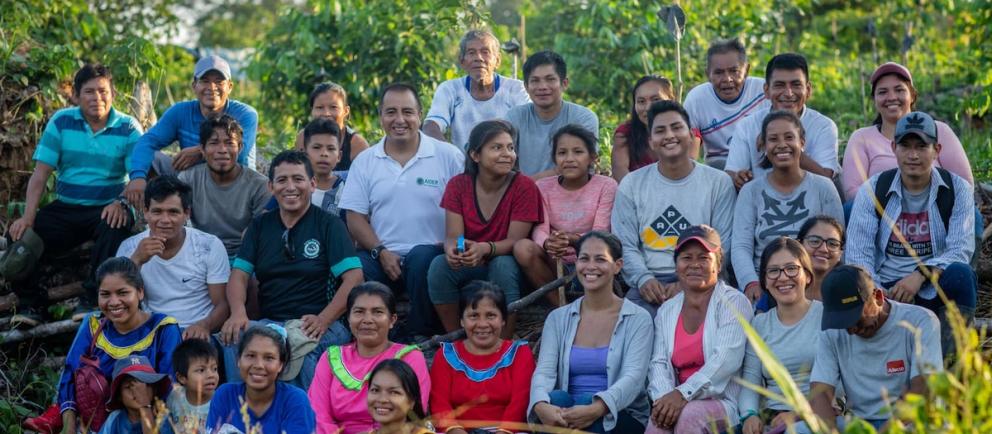- Buffer zones are erected to protect the existing forest
- Sustainable and improved livelihoods for local communities
- Promotion of the production of traditional handicrafts
- Implementation and screening of forest plantation
Traditional handicrafts to save the trees
We need trees as much as we need air to breathe. The rainforest, “the lungs of the earth”, produces oxygen for us to breathe and stores CO2. Thanks to your help we were able to add a new forest protection project into our mix. In the Ucayali region in Peru your contribution supports the Nii Kaniti project. Buffer zones are established and maintained for the protection of forests, people and animals, as well as alternative sources of income without having to sell timber are promoted.

Local communities depend on timber to attain income. If that business line can no longer be the main source of income due to deforestation issues, finding new sources of income – in the most sustainable way possible – is vital. This can be achieved by growing and selling fairtrade cacao as well as rubber, banana and traditional handicrafts. Through generating new sustainable sources of income the communities are no longer dependent on solely cutting down and selling wood. An improvement of income for more than 350 households was achieved. Your support protects nearly 120,000 hectares of endangered rainforest and on 7,000 of them, logging has been actively prevented. By 2021 it was possible to save 2.7 million tonnes of CO2.
Why Peru?
The Amazon rainforest is particularly at risk from illegal logging. This would not only endanger the habitat of humans and animals, but also destroy important players in the fight against the climate crisis. In cooperation with seven communities belonging to the Shipibo Conibo and Cacataibo ethnic groups, deforestation-free project activities are being promoted. Workshops and training focus on the importance of the conservation of the rainforest.

Forest & developement - the name says it all.
In the local language Nii Kaniti translates to “forest and development”. Locals are key players when it comes to biodiversity, culture and climate protection. Workshops and trainings are held locally, addressing climate change, as well as teaching technical skills and forest management. Local people are given the tools to take care of buffer zones and revive old traditional crafts. Among other things like their handicrafts, crops such as cacao, banana and rubber trees will be tended to and sold at local fairs. Native cacao and timber species are planted to restore 480 hectares of previously deforested land for cattle grazing. Deforestation is further avoided through better forest and land management and the development of sustainable land use.
More trees = less CO2
For conservation purposes native seedlings are planted to drive forest plantation. Existing trees are protected in an effort to prevent further deforestation. In this way, they can continue to bind CO2 and produce oxygen that is vital for us.

Next up… Powerful women. How our projects impact their lives.
Fotocredit: Agilis Tech





